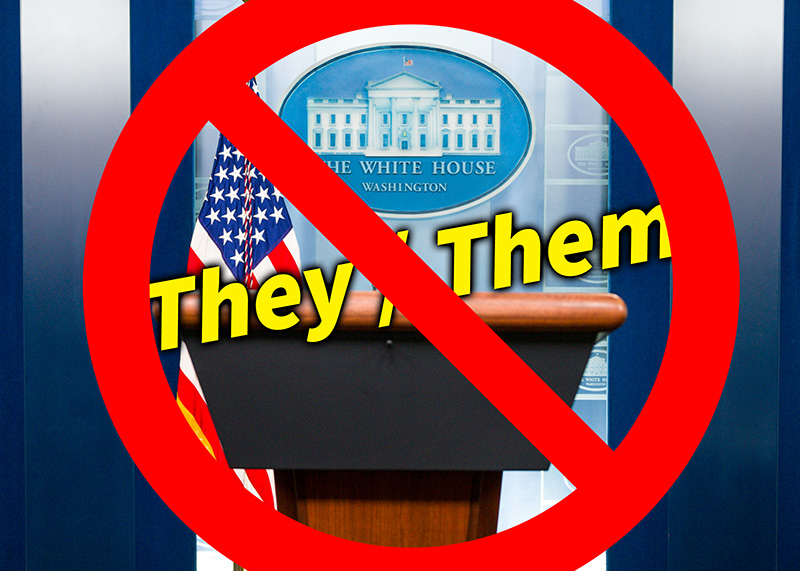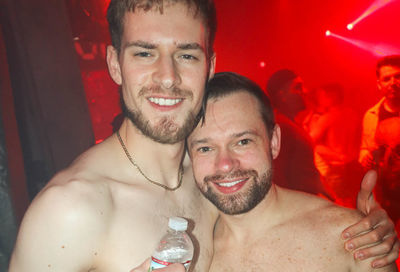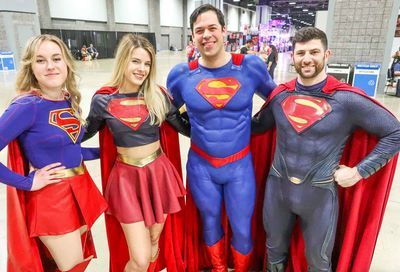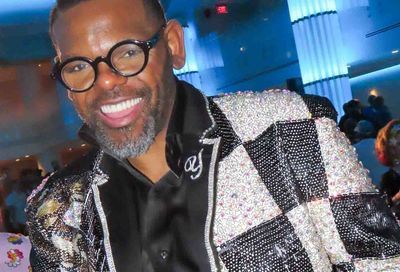Mighty Real: Janet Mock
With her new memoir, ''Redefining Realness,'' Janet Mock shares her journey as a transgender woman with honesty, eloquence and without apologies

Janet Mock
(Photo by Aaron Tredwell)
MW: Some of what you shared from high school was particularly chilling, in that it would seem an age where adults would begin to respect your choices, educators especially.
MOCK: It was so hard for me, because I had this life in school and then I had this life outside of school. It felt like a dual existence, especially in high school. I had this nighttime life with these trans women who I just observed — like we say, “gagged over.” I gagged over their beauty and their resilience and their wits and determination and sexuality. Everything was like, “Oh, my God, I want to be like them, have a life like them” — without knowing their lives were so limited.
Then, in school, I had never gotten in trouble except for when I was being myself. When I decided to be myself, then the friction came in. All of a sudden, my identity was making people uncomfortable, which was being vocalized to me as a 14- and 15-year-old. Their internalized anti-trans bias, their internalized homophobia, their internalized misogyny — all of that — the idea of femininity being expressed in a body that’s not supposed to express it that way was so overpowering that they forgot that I was even a child. What does it mean that you’re telling me — right here in your office — that I am wrong? That I shouldn’t be here, that I shouldn’t do that? Instead of supporting me, instead of saying that what’s being said to me in class is traumatic and no child should have to go through that?
It’s still happening. Think about [15-year-old student fatally shot at school] Larry King and that documentary, Valentine Road. You saw one of the teachers who was like, “Yeah, I understand why that happened to Larry.” Are you oblivious to this being a 15-year-old child who was shot in class because of their femininity? Because of their audacity to be seen and heard as who they are? That’s what got me riled up. That’s what led me to share my story, then to share my story in its totality in this book.
MW: That’s what led you to come out? You didn’t have to.
MOCK: I felt like no one was talking about the violence that was happening to trans women. Also, Larry King and the verdict. So much was happening around that same time. The Larry King story I was watching so closely — also not being very vocal about why it was so resonant for me, why it felt like a state of emergency for me, why I knew that kid was trans. Because I was that kid. I remember acting that exact same way in class. And I wasn’t hearing those conversations really being had in the mainstream.
Even within the trans community, if you can “pass,” you ought to be silent and get on with your life and get what you can get. And I did that from 18 to 27, when I made the decision to step forth. When I made that decision, I was so frustrated that I didn’t feel the media had a story that reflected my life and the lives of the girls that I knew and grew up with. Instead of constantly complaining about that frustration, I thought, “Why don’t I step in and try to fill the void.” Then I realized there was just a hunger, and that I had these skills as a writer, as a journalist, that I could probably help create something. It’s just been astounding that I’ve been able to do the things I thought I would never be able to do.
I always quote Alice Walker here saying she writes the things that she should’ve been able to read growing up. I live by that motto, that mantra, writing the things I should’ve been able to read as a 14-, 15-, 16-year-old, finding myself, to know that I wasn’t alone and that nothing was bizarre about me and my experience. That’s the common thread within this coming-out process. Or, as my friend Darnell Moore says, the “inviting-in process,” choosing to invite people into your life, to know you more. That’s what I’ve been steadily doing. The book is now the biggest part of my invitation to the world to know about me and hopefully know more about this very marginalized group of women.
MW: With the perspective you might get through your involvement with the Hetrick-Martin Institute, do you find the behavior of those adults in your youth even less acceptable? Does it give you perspective to forgive them?
MOCK: It does, in a sense. I understand that they’re limited by what they don’t know. There’s a part of me that has compassion because I understand how limited they may be.
At the same time, I don’t know how you can just “other,” how you can dehumanize children who don’t align with your ideals or what you thought a child or a human being is supposed to be or grow up into. So, part of me feels a slight bit of compassion, but it’s mostly anger. It’s anger and frustration, because I know how a good teacher, a teacher who supports and affirms you, how much of a difference that makes.
Although I had a few traumatic experiences with adults in school, I do have those pivotal little bursts of light. Those people who represented refuge for me at a time when I needed someone to talk to, who treated me as Janet, who called me “she” and “her,” who gave me space to let me know I could be a leader, that I could be a peer mediator, that I could help run a student-support group, who pushed me to sign up for the scholarship. There are also those great people, too, who made my existence so much easier.
I think of places like Hetrick-Martin giving spaces to queer and trans youth, letting them know, “At home, in school, I know you can’t dress up or you can’t wear your wigs because it’s not safe for you, but here, from 3 p.m. to 6 p.m., you can be yourself. It’s safe for you to do that, and do it around other young people like you, and just kind of kiki and be silly and be a kid.” That’s so vital to being a kid. Those hours can override all the other negativity in their lives. A little spot of sunshine.
Support Metro Weekly’s Journalism
These are challenging times for news organizations. And yet it’s crucial we stay active and provide vital resources and information to both our local readers and the world. So won’t you please take a moment and consider supporting Metro Weekly with a membership? For as little as $5 a month, you can help ensure Metro Weekly magazine and MetroWeekly.com remain free, viable resources as we provide the best, most diverse, culturally-resonant LGBTQ coverage in both the D.C. region and around the world. Memberships come with exclusive perks and discounts, your own personal digital delivery of each week’s magazine (and an archive), access to our Member's Lounge when it launches this fall, and exclusive members-only items like Metro Weekly Membership Mugs and Tote Bags! Check out all our membership levels here and please join us today!




















